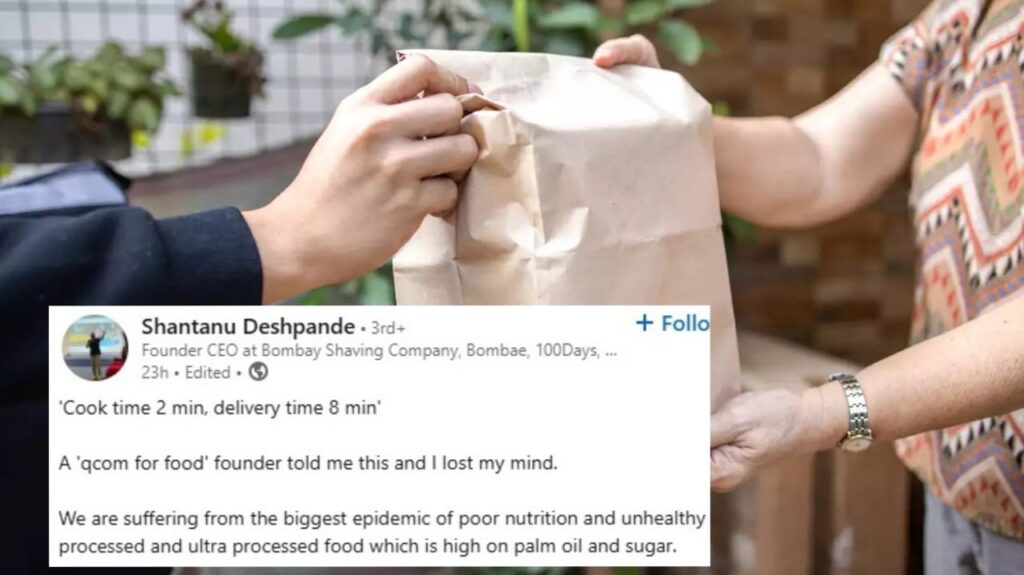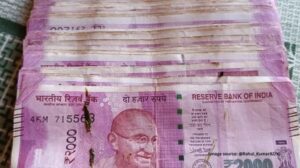“Cook Time 2 Min, Delivery Time 8 Min” – Bombay Shaving Company CEO Warns of Health Risks in India’s Quick Food Delivery Industry

"Cook Time 2 Min, Delivery Time 8 Min" – Bombay Shaving Company CEO Warns of Health Risks in India's Quick Food Delivery Industry
Deshpande calls for better regulation and healthier practices in India’s rapid food delivery ecosystem.
Shantanu Deshpande, CEO of Bombay Shaving Company, has raised concerns about the impact of India’s quick food delivery industry on public health, calling it an “epidemic” of poor nutrition. In a LinkedIn post on Sunday, Deshpande critiqued the practice of delivering meals cooked in two minutes and delivered within eight, describing it as unsustainable and harmful.
The startup founder highlighted the use of processed and ultra-processed foods loaded with palm oil and sugar, which are hastily assembled to meet tight delivery timelines. He shared an anecdote from a conversation with a quick-commerce food founder:
“Cook time 2 min, delivery time 8 min. A ‘qcom for food’ founder told me this, and I lost my mind.”
Deshpande argued that India is heading toward a health crisis similar to that faced by the US and China, but without the economic safety net to mitigate its impact. He criticized cheap junk food options such as Rs 49 pizzas and Rs 30 burgers for fostering unhealthy eating habits.
Deshpande urged food delivery giants like Zomato, Swiggy, and Zepto to prioritize food quality over speed, asking investors and founders to ensure that their products are both safe and palatable. He also directed regulators to keep a close watch on the industry, warning that the current trajectory could result in significant health issues in the long term.
“I would LOVE if we innovate and are able to actually give non-stale and decent food in 10 min. Massive unlock. But I don’t think we’re close to there yet,” Deshpande said.
He encouraged people to adopt cooking as a basic life skill, noting that homemade meals are far healthier than quickly delivered food.
“The gut is the epicenter of your existence. YOU ARE WHAT YOU EAT,” he emphasized.
Deshpande’s post sparked widespread discussion on social media. While some supported his stance and resolved to cook more at home, others stressed the need for a regulatory authority to oversee food preparation practices.
Jaikishan Bhatia, a manager at Cipla, suggested separating preparation time from delivery time to balance speed and quality:
“Quick delivery isn’t the problem; compromised food quality is. Let startups chase their 10-minute delivery dreams, but ensure the food preparation takes adequate time.”
Deshpande’s concerns have added a crucial voice to the conversation about the long-term health risks of convenience-driven food habits in India.












